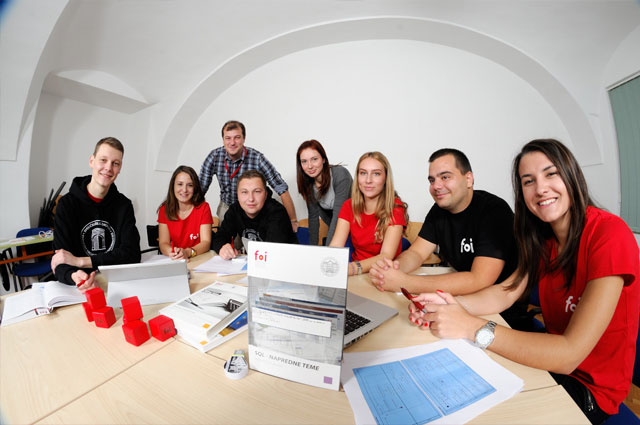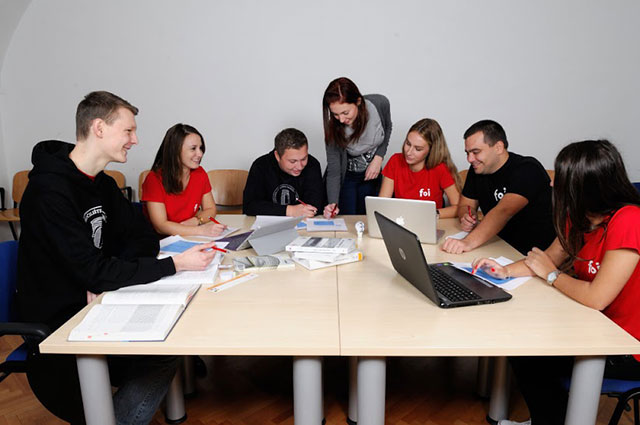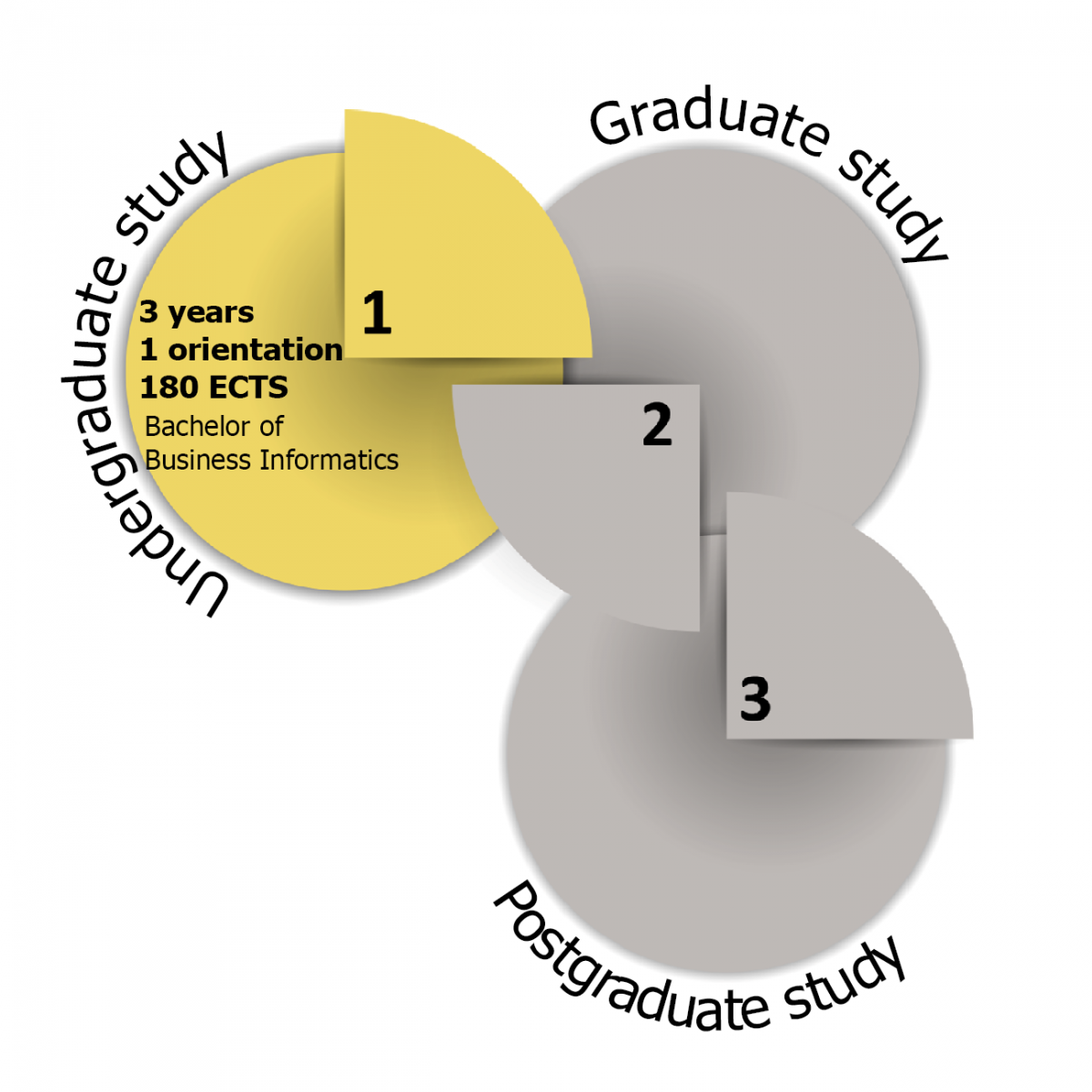Information Technology and Business Digitalization
Information Technology
and Business Digitalization is delivered at the Faculty but
also at the study centres located in Zagreb and Sisak. Upon completing this study programme students
receive the professional degree Bachelor of Business Informatics.
The study programme Information Technology and Business Digitalization was developed and it is delivered by
the Faculty of Organization and Informatics in Varaždin. In the performance of the study programme, the
Faculty has established cooperation with other higher education institutions as well as organizations from
private and public sector.
The study programme Information Technology and Business Digitalization is performed in the duration of three
years. Students are required to earn a minimum of 180 ECTS credits at the undergraduate level.
Upon finishing this three year study programme students receive the professional degree Bachelor of Business
Informatics.
By achieving the learning outcomes through the study process, students will gain the following:
- Knowledge and understanding of fundamental disciplines, such as selected fields of mathematics,
economics and foreign languages, as a basis for acquiring necessary expertise
- Knowledge and understanding of individual economical methods, organization management methods and
methods of information systems development
- Knowledge and understanding of product or service lifecycle, as well as of an information system
development lifecycle
- Understanding and application of basic information system development methods in the field of modelling
and developing of simple software solutions (database and software applications)
- Knowledge and ability to apply methods in the development of software support for simple organizational
processes on the level of deployment
- Knowledge and ability to participate in the creation of documentation of information systems (IS
maintenance and protection).
Learning outcomes
- Identify and analyze relevant internal and external factors that impact the selection of business
opportunities and the business operation efficiency of a business entity in the domestic and
international market
- Evaluate business results and interpret performance indicators for the purpose of management and
decision-making
- Apply principles of entrepreneurship and entrepreneurial action within existing business entities as
well as in the context of starting one’s own entrepreneurial ventures
- Suggest and apply methods of communicating with clients, users and colleagues in speaking and writing
using appropriate terminology, including the ability to communicate about one’s professional field of
discipline in a foreign language
- Select and use information and communications technologies in the functioning of business systems
- Select an appropriate organizational architecture at the decision-making, management and execution
levels in organizations in the private and public sector using information and communications
technologies
- Manage the lifecycle of a product or a service as well as the information system development lifecycle
- Suggest and apply basic methods of information systems development in modelling and designing simple
software solutions
- Suggest and apply methods of development of software for simple organizational processes at the
execution level
- Create and maintain documentation needed for installation, configuration, adaptation, administration and
security of information systems
- Understand the role of and maintain the operating system as well as network and data infrastructure
- Select and apply methods from programming, data technologies, data modelling and process modelling in
problem domains
- Understand and apply selected mathematics topics from logic, relations, linear algebra and statistics
that are a basis for acquiring the knowledge of IT and economics
- Choose and apply selected information systems protection techniques using the knowledge of legislative
and normative information and computer security frameworks
- Plan and support the implementation of new information technologies to support organizational
processes
- Apply appropriate methods and tools for supporting data processing, interpretation and visualization to
support the decision-making
- Apply learning strategies (including e-learning) and planning skills needed for lifelong learning and
continuation of education at the graduate level





